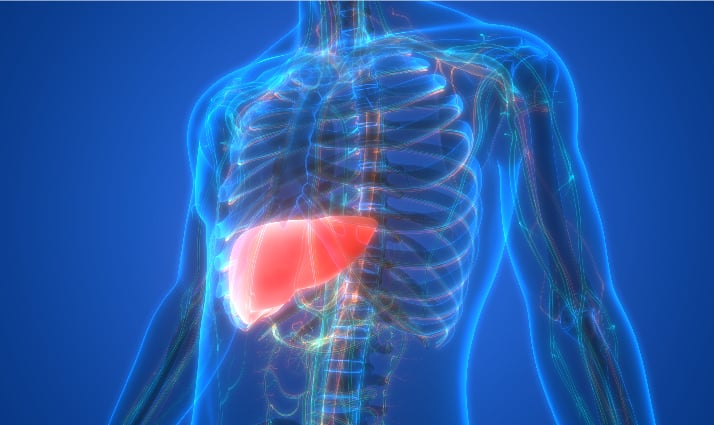Pancreas Transplant
November 4, 2019

Diabetes mellitus is a chronic disease which occurs when the pancreas does not produce enough insulin (type 1 diabetes), or when the body cannot effectively use the insulin it produces (type 2 diabetes). Diabetes mellitus in the long-term affects our blood vessels and nerves and therefore can affect any part of the body. A number of years of poorly controlled diabetes can lead to a number of complications including kidney failure needing dialysis/transplantation, heart attack, stroke, impairment or loss of vision and damage to nerves commonly leadng to poor sensation in feets. Sometimes having low blood sugars without any warning (hypoglycemic unawareness) may put the diabetic at risk of having major life threatening events.
A pancreas transplant is a surgical procedure to place a healthy pancreas from a deceased (cadaveric) donor into a person whose pancreas no longer functions properly. There are three types of pancreas transplant;
- Combined pancreas and kidney transplant – More than two-thirds of pancreas transplants worlwide are performed combined with a kidney transplant for people whose kidneys have been damaged by diabetes. This is done for patients who either have already started dialysis or are nearing dialysis. Both the pancreas and kidney are usually obtained from a deceased donor, but sometimes the kidney can be from a living donor.
- Pancreas after kidney transplant – This is done for patients with diabetes who have already had a kidney transplant (from a living or deceased donor). This could also be the case in those who have had a pancreas and kidney transplant, but the pancreas fails, hence necessitating a re-transplant.
- Pancreas transplant alone – The thid and the uncommon type is to transplant pancreas alone. This is usually done for diabetic patients who experience erratic blood sugar control (such as hypoglycemic unawareness) despite taking insulin. These patients have normal or near normal kidney function.
Following pancreas transplant, the patient will no longer need insulin shots or regular blood sugar checks, able to eat a regular diet, be more active and independent. If they also get a kidney transplant, then they can free themselves from dialysis, which offers them freedom from dietary and fluid restrictions, which patient’s would have had to follow before their transplant. However, not all patients with diabetes are suitable for a pancreas transplant because of the need to be in relatively good health to have this major operation. All patients with dabetes being considered for pancreas transplantation will need to have a number of pre-operative investigations to confirm their suitability to undergo the procedure. The most important of these investigations is to ensure there is no silent heart disease, which is common in diabetic patients. Hence, cardiovascular (heart and blood vessels) investigations are more rigorously checked for pancreas transplant recipients.
The main aim of a pancreas transplant or a combined pancreas and kidney transplant is to improve both the quality and the length of patient’s life. Diabetes causes a number of life threatening complications which may well be reversed or halted as a result of having a pancreas transplant. The common diabetes related complications which have been shown to either reverse completely or stop progressing are the damage to the kidneys, damage to eyes and damage to nerves. The reversal of these complications are usually seen following atleast two years of a successful functioning pancreas transplant. Having a successful pancreas transplant will reduce the ongoing damage to the blood vessels caused by the high levels of blood sugar. As a result, if you have had a successful pancreas transplant you are likely to live longer and have less chances of further heart related problems or stroke that may affect your lifespan.
After the pancreas transplant you will need medications to prevent rejection of the transplanted pancreas/kidney. These are the immunosuppression medications which reduce your immunity and prevent your body from rejecting the organs. These need to be taken lifelong. Although these medications does add the risk of infections or developing cancers, the risk far outweighs the benefit of living with life threatening complications of diabetes or continuing on lifelong dialysis.
There are no outcome data from India to report on patient survival or pancreas graft survival after transplantation. From the UK data, the one-year and five-year survival patient survival is approximately 97% and 90% respectively. At one- and five-year, 88% and 78% of pancreas will still be functioning. In case, if the type 1 diabetes patient remains on dialysis and does not get transplanted with either pancreas or kidney, then their one-year risk of dying if nearly three times more than those transplanted. If they live more than one year, their risk of dying is nearly six times more compared to those transplanted. Similarly, the chances of a diabetic being alive at 25 years after a combined pancreas and kidney transplant is 70% versus 27% in case of a kidney transplant alone. Therefore, it goes without saying that pancreas transplant offers the ‘best medical therapy’ for type 1 diabetes and selected type 2 diabetes patients.












